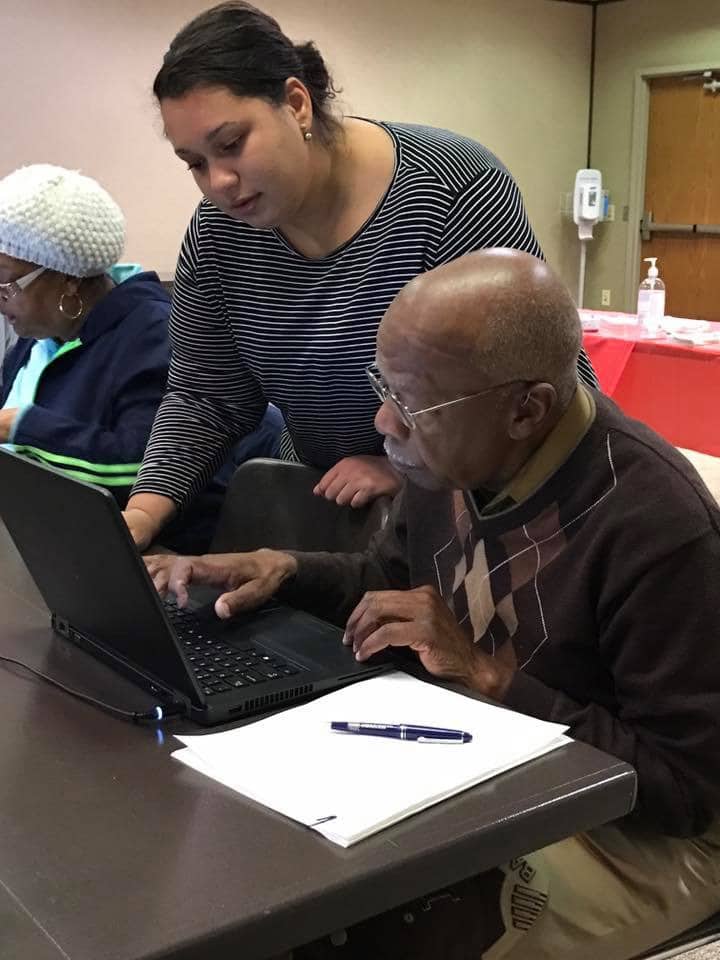“Wait, what exactly is it you do again?” was a frequent question I was asked by my new co-workers during my first weeks as a Digital Inclusion Fellow at Charlotte Mecklenburg Housing Partnership (CMHP). CMHP is a broad-based, private, nonprofit housing development and financial corporation organized to expand affordable and well-maintained housing within stable neighborhoods for low and moderate-income families in the City of Charlotte and Mecklenburg County. We have dedicated staff who work with people to buy their first home, avoid foreclosure, and move in to affordable housing. A new digital inclusion program at CMHP would be a unique animal, and I figured it would be an exciting challenge to find ways to weave digital inclusion throughout seemingly unrelated existing programs.

As it turns out, digital inclusion seamlessly intersects with many, many factors necessary for a high quality of life and opportunity in our communities — including housing. As a Fellow, I was able to work with staff to integrate aspects of digital literacy into their work with clients. Whether it be how to search online for affordable housing options, manage a bank account online, or check your credit score before applying for a mortgage. Along the way we also discovered how digital literacy classes can serve as a forum for building a sense of community between neighbors.
As a Fellow, I worked with a variety of partners to highlight the connection between Internet access and daily life in areas such as health, education, and financial literacy. I created digital literacy curricula and tailored classes to meet the unique needs of the students in the room. This allowed our program participants to work toward their own definition of success. One student was able to learn how to use Facebook to connect with long-lost family members in Somalia. Another participant was just as thrilled to learn how to watch her pastor preach during the live streaming church service. During a “health + digital literacy” class, one student left satisfied when she learned how to share a photo of herself 50 lbs. slimmer. These varying pictures of success were what made being a Fellow such a meaningful experience. I was privileged to both teach and learn from hundreds of students (and volunteers!), and to be there to cheer them on when they reached their personal goals.
Upon completion of the Fellowship year, all questions about how digital inclusion could possibly make sense in our nonprofit housing organization have disappeared. I am fortunate to now be a permanent full-time employee at CMHP as the Community Engagement Specialist, where digital inclusion remains one of my key priorities. Recently, I was able to go back and visit past Computer Basics 101 students. These were residents at Cheshire Chase, one of CMHP’s affordable housing communities where Google Fiber is providing free gigabit internet to all residents and E2D provided each class participant a refurbished laptop. The coalescence of high speed Internet access, devices, and digital literacy training all in one place helped residents make the most of their educational and professional opportunities.. What a difference a year makes — you can hear firsthand from residents what this program meant to them and their families in this video.
If you are a staff member at an organization interested in helping your community bridge the digital divide, now is your time! NTEN is currently accepting applications for 2018 Digital Inclusion Fellows, funded by Google Fiber and other companies, in cities across the country through November 17, 2017. Apply today!
Posted by Cache Owens, former Digital Inclusion Fellow and current Community Engagement Specialist, Charlotte Mecklenburg Housing Partnership, Inc.

